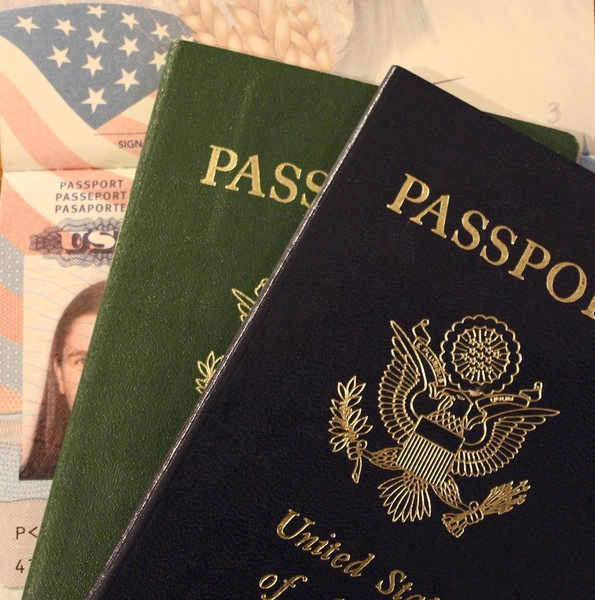Moving abroad is not something that should be done without doing proper research. Moving to a new country means moving your entire life including your house and your job, and it is a decision that seems exciting and scary at the same time. But you need to step away from your excitements and consider all the things you have to prioritize. You should be fully prepared for all the possible outcomes. There is more to it than just passports, tickets and money. Many people do not consider a lot of important things such as housing and a job before they move in another country, and we are here to shed some light on those important points.
1. Learn The Native Language
Learning the language of the country you are moving to is essential. Once you go to a strange land, you will need to connect with other people and explore the place. All of this is not possible if you cannot speak the native language. If you are moving to Japan, try to learn Japanese, or at least learn the basics so you can easily communicate. The rest of the language learning and fluency will come after you have spent a few months in the country.
While learning a language may seem difficult to you, it is something that must be done. The determination can play a role in language acquisition, and your need for a language to seek a job and establish a social life can prove as a major motivator.
2. Housing
You have to figure out how you are going to survive in another country and this includes your way of transportation and where you are going to live. When you move to another country, you are practically homeless. It is better to take care of those things from your own country so you can start your normal life as soon as you reach your destination. Staying in a hotel can be a temporary solution but try not to stretch your stay because it will waste the extra money.
When you rent an apartment, you will need to submit the rent for the first two months and the security deposit, and you should have enough money with you so you can cover that. There will be some other things that you will have to take care of such as electricity and gas bills. Try to surf some expat forums for real advice the matter.
3. Figure Out The Means Of Transportation
The next step is to find the various modes of transportation in that country. When you move to a place, you will have to go to your office or college/university, and you cannot do that by walking all the time. Different countries have different transports, some of them are expensive, and some of them are cheap. Always choose the cheap mode of transportation. When you are settling, in the beginning, it would be better to keep your expenses to the minimum. Do not break any rules, pedestrian or driving. Learn how to take the bus or train to work.
4. Learning The Etiquettes
Every country has a different culture and norms. The rules and etiquettes of another country will be totally different from yours, and if you are not familiar with that, it can stop you from connecting with the natives. Before you go to a new country, you have to learn some basic rules and etiquettes of that culture. When you move, you will need to blend in so the people around you can accept you, and knowing the people better will help you do that.
Learn how to behave properly and how to greet other people. Some of the things that you should learn at once are the things that can annoy or offend the locals. Some gestures in one country can be completely normal, but in other countries, they can be considered offensive. Learn the local greeting phrases, so you can greet the people at your workplace or in the neighborhood. Try to learn about the local holidays, when they are and what is their significance. If the person in that country offers you some gift or meal, accept it wholeheartedly so they can consider it as a polite gesture.
5. Health Care
When you live abroad, at some point, you will encounter the health care system. Before you move to another country, find out if your current health care provider will be able to cover you while you are abroad. Get in order all of your medical records because you may need them in the future, and get all the necessary immunizations. Some countries have very strict rules, and you cannot go there without proper vaccinations. You can find out which vaccines you will need. If you are on some medication, you also need to see if your prescribed medications are permitted in the other country and whether they are easily accessible there. If the medicines are not permitted or are not available, plan to bring them with you or ask for alternative medications.
6. Reality Check
Moving to a new country will bring along its own sets of challenges including Culture shock, adjusting your expectations to reality, and learning about a different government and its rules/problems. You need to mentally prepare for all of these difficulties, as they are part of the process. No country is perfect, and you will feel of these problems no matter where you move. A lot of the people are so overwhelmed by the idea of starting their life at a new place, that they for unrealistic expectations of the idea. Do not be one of those people! Know that your transition can be difficult and you can face problems at every turn. It is not only the financial problems that can shake you, but you will probably also get homesick. In those times, keeping in touch with your family and friends is important.
Moving abroad can bring changes to your life. Learn all the things we have mentioned above so you can make sure that those changes are positive!
About the Author:
Lara Smith has worked for Wall Street English for 20 years. After studying at Stanford University and subsequently doing a CELTA course, she began her career in teaching. She is obsessed with languages and currently writes blogs at https://www.mimicmethod.com/.








Comments (0)